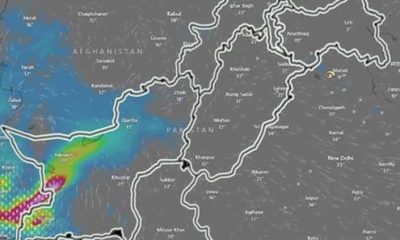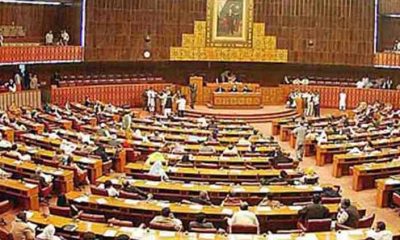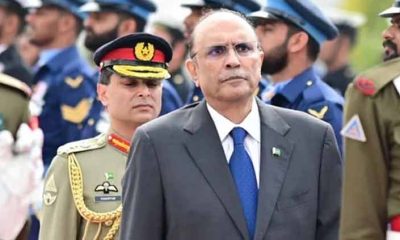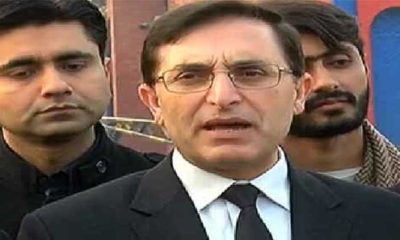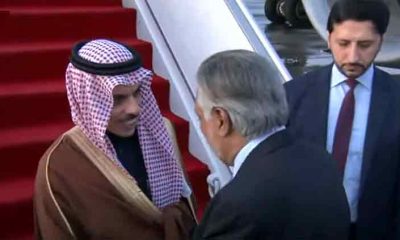When many of the world nations are vying for ‘Halal Food,’promoting Balochistan’s livestock sector can prove to be a major contributor to our exports and earnings direly needed foreign exchange.
Having incredible potential, the livestock sector of Balochistan has emerged as one of the major pillars of the province’s economy by contributing more than 50 percent to its Agriculture GDP and 10 percent of the overall Provincial GDP.
Tapping this resource and its value addition through multiple incentives can provide better earning opportunities to local people and generate revenue to control our trade and current account deficit.
“Balochistan has incredible potential to become the largest entrepreneur of the livestock industry due to increasing demand of halal food in Muslim countries,” said Dr Afzal, a Livestock expert at Food and Agriculture Organization (FAO).
“I have suggested the provincial authorities to focus this sector for meat export to Muslim countries,” he said. “Promoting meat export at the government level will boost provincial economy and create employment opportunities in Balochistan,”
Since the livestock sector in the province had been facing challenges like insufficient water and fodder availability, inaccessible veterinary services, inadequate grazing pastures, and proper marketing, therefore Dr Afzal stressed a holistic approach to promote this sector.
“In my view, long-termed policies, genetic improvement, diversified and open marketing system, credit and insurance, sustainable rangelands productivity and proper vaccination drives were direly needed to enhance livestock productivity and export,” he said.
Livestock is one of the core assets and main source of livelihood for rural households in Balochistan with around 70 percent of its population directly or indirectly associated to this sector.
As per the projected livestock population, Balochistan maintains 5,660,707 cattle, 1,199,277 buffaloes, 16,436,976 sheep, 16,880,371 goats, 467,487 camels, 108,129 horses, 25, 964, mules, 657,791 asses and 8,467,330 poultry.
As the official statistics suggest annual 28,000 tons beef and 204,000 tons of mutton production, this sector contributes around Rs. 20 billion to provincial economy with meat’s share at 40%, milk 35%, eggs 13%, skin, hides and wool sharing 10% besides two percent other items.
“As the Balochistan government acknowledges livestock sector potential and its contribution to socio-economic development of the province, therefore we have launched ‘Animal Health Information System,” said Dr Ghulam Rasool Taj Director General Animal Health and Production Extension.
Due to this system, he hoped the livestock sector, its actors and its value chains to step forward for transforming it into a modern and revenue-generating sector.
“This system would prove to be a stepping stone for circulating information and ensuring wellbeing for the entire livestock sector,” Ghulam Rasool said.
“I am confident that Information System would effectively educate the existing livestock keepers and attract more to opt for this business.”
Despite ecological limitations and being arid and semi-arid province, the livestock contributes 55% of agriculture value added, 11.4% of national GDP and more than 47% in the economy of Balochistan.
Around 93% area of the province comprises rangelands, out of which 28% is considered fair to good for livestock production. Hence, barring some portions of upper and lower highlands in north-eastern part of the province having best ranges which support 76% of livestock, the southern plains with big land mass have the poorest ranges supporting only 24% livestock population.
Some of the land surface area does not even support the rearing of livestock round the year, thus necessitating seasonal migration of nomadic and semi-nomadic grazers to find fodder for their cattle mostly sheep and goats.
It is worth mentioning that first veterinary unit in Balochistan was established at Tehsil Duki in 1884 during the British regime. Then rapid Development started in 1958 after the introduction of the five-year plan for promoting poultry, sheep, goats and cattle farms. Disease diagnostic facility and animal health coverage was started at a mass scale and the number of livestock increased rapidly.
During 1982-85, 1000 Friesian Cows were imported from Denmark for increasing Milk Production in the area through ADB Loan. Later on, keeping in view the importance of this sector, “Balochistan Livestock Policy and Strategy 2020-30” was launched in October 2019.
“The primary objective of agriculture policy in Balochistan is to raise incomes and employment for rural people, at the same time halting and reversing the rapid resource degradation taking place,” said Mohammad Farooq, Director Planning Animal Health and Production Extension.
“This policy has started bearing fruit. With the launch of ‘Animal Health Information System’ issues related to disease outbreaks are resolved besides the upgradation of dairies and poultry farms,” he informed.
The animal genetic resource also plays a pivotal role in the province’s economy as each breed has its own characteristics and socioeconomic importance in poverty reduction and food security.
Concerned authorities require to continuously focusing on farmers problems like delay in vaccination, marketing of their products and value addition, financing and insurance and introducing new breeds for them.
“We need a proactive approach of authorities during epidemics and seasonal diseases,” said the President of Balochistan Dairy farm Association Altaf Gujar. “Delay in medication sometimes puts industry’s growth at risk as happened during the recent outbreak of lumpy skin disease that killed thousands of animals.”
“If authorities fully concentrate, massive revenue can be generated from cattle farming,” he stated and suggested to incentivize this industry for enhancing produce and meeting future meat and milk needs.
Post Views: 79

 Fashion3 months ago
Fashion3 months ago
 Fashion3 months ago
Fashion3 months ago
 Sports2 months ago
Sports2 months ago
 Sports2 months ago
Sports2 months ago
 Fashion2 months ago
Fashion2 months ago
 pakistan2 months ago
pakistan2 months ago
 World3 months ago
World3 months ago

